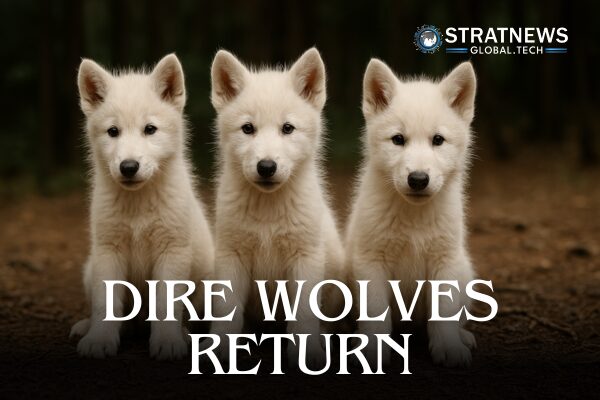Colossal Biosciences Claims Breakthrough in Dire Wolf De-Extinction
US-based biotech company Colossal Biosciences has announced that it has created three dire wolf cubs. These animals, believed to have gone extinct over 10,000 years ago, were reportedly born after the company modified the genome of a modern grey wolf using dire wolf DNA found in ancient fossils.
Reviving the Past Through Genetic Engineering
In a video released on Monday (7 April), Colossal showcased what it identified as adolescent dire wolf cubs named Romulus and Remus. A third cub, a female called Khaleesi, was also said to be part of this historic development. Colossal stated that their team extracted DNA from fossilised remains, including a 13,000-year-old tooth and a 72,000-year-old inner ear bone.
The company did not disclose where or when the footage was recorded. As of now, Reuters has not been able to independently confirm the authenticity of Colossal’s claims or verify the location and date of the video.
Experts Question Scientific Validity
Despite the excitement, experts remain doubtful. Professor Corey Bradshaw from Flinders University in Australia expressed scepticism over the feasibility of reviving a fully extinct species. According to him, completely reconstructing the genome of a species like the dire wolf is not yet scientifically possible, mainly due to DNA degradation over time.
Bradshaw suggested that what Colossal may have achieved is a slightly modified version of a grey wolf, incorporating a few genetic elements retrieved from dire wolf fossils. “Does that make it a dire wolf? No,” he stated. “Does it make a slightly modified grey wolf? Yes.”
He also criticised the lack of supporting evidence. “When you make bold claims and don’t back them up with solid proof, especially in controversial areas like this, it raises major concerns,” Bradshaw said.
Gene Editing at the Forefront
Founded in 2021, Colossal Biosciences promotes itself as the first biotech firm using CRISPR technology to explore species revival. In addition to the dire wolf project, the company claims to have cloned critically endangered red wolves and genetically engineered mice to exhibit traits of the extinct woolly mammoth, calling them Colossal Woolly Mice.
Although their work continues to draw global attention, the debate around ethical and scientific implications remains unresolved.
with inputs from Reuters


